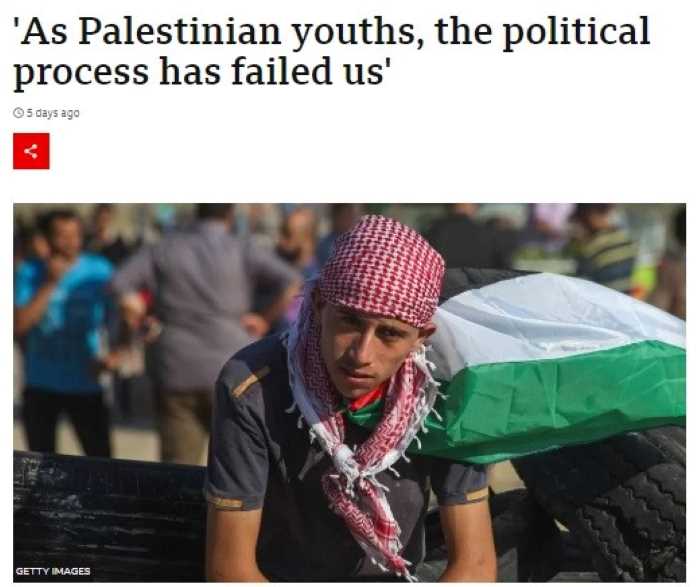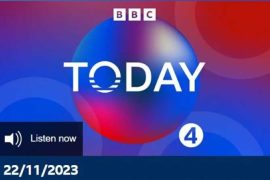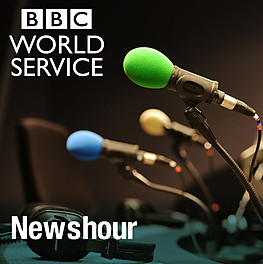Previously we discussed one point arising from written and filmed reports by the BBC World Service’s Yousef Eldin which were published and aired on June 13th:
BBC AGAIN VISITS TERRORISTS IN JENIN, PROMOTES ONE-STATERS – PART ONE
As noted, the basic premise promoted by Eldin in those reports is that young Palestinians reject the concept of the two-state solution and that their frustration with their own political leaders and processes has led to support for armed confrontation with Israel: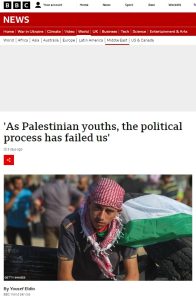
“Palestinians under the age of 30 have never had a chance to vote in an election and many say they have little faith in the Palestinian leadership. Exclusive data shared with the BBC suggests they are increasingly rejecting the idea of a two-state solution to the Israeli-Palestinian conflict.”
In line with BBC editorial policy, Eldin’s portrayal of relatively recently formed groups such as the Jenin Battalion and the Lions’ Den does not include the word terror. Moreover, he repeatedly promotes the inaccurate notion that they are “independent of known militant groups” which hampers audience understanding of the inaccuracy of his additional claim that members of such terror groups “have publicly rejected links to political parties in their country [sic]”.
In other words, Eldin focuses audience attentions on the discontent of Palestinian youth with the Palestinian Authority but fails to clarify that some, including those who have joined the new terror groups, clearly do not have issues with no less authoritarian and undemocratic factions such as Hamas and the PIJ and that support for terrorism has been evident among Palestinians for many years, regardless of the leadership at the time.
In addition to terror groups, Eldin’s reports also showcase several young Palestinians. Perhaps not surprisingly given his encounter with the Tamimi clan while filming a previous parachuted report in 2019, one of his interveiwees is Jana Tamimi, otherwise known as ‘Jana Jihad’.
“Janna says she is one of the youngest accredited journalists in the world. At the age of seven she began borrowing her mother’s phone and covering protests in her hometown of Nabi Salah in the occupied West Bank.”
In the filmed version, Eldin allows Tamimi to promote the risible claim that when she began her activities ten years ago there “weren’t enough journalists covering what was happening in Nabi Saleh”, as well as the ‘apartheid’ smear.
Eldin also interviews a photographer and three inadequately identified Bir Zeit university students from two political factions; the DFLP and the Islamic bloc. In the filmed version, Usama, the Hamas supporter, is allowed to dismiss the terror designations of that faction and others as political – with no challenge from the interviewer – and to raise the possibility of Hamas control over the areas currently under PA rule without any mention of its sixteen years of failure in the Gaza Strip.
Some of those interviewees raise points related to internal Palestinian affairs such as political detentions, taxes, killings, freedom of assembly and freedom of expression. As regular readers will be aware, the BBC serially avoids such topics, meaning that audiences have little if any understanding of the issues concerned.
Eldin’s claims are based on information provided by one source: Khalil Shikaki of the Palestinian Center for Policy and Survey Research who was interviewed by the BBC on the same topic in 2018. Readers of the written report are told that:
“The West Bank-based Palestinian Center for Policy and Survey Research has tracked the changing views of the population for over two decades and has shared data exclusively with the BBC on 18 to 29-year-olds. […] support for armed confrontation is highest amongst under 30-year-olds, with over 56% supporting a return to an intifada, or uprising, against Israel, according to the most recent poll in March.”
In fact, that percentage is not significantly higher than in the general population, as reported by the Jerusalem Post two days after this report was published. Notably, Eldin made no effort to remind BBC audiences of the disastrous effects of the two previous intifadas on the Palestinians or of the numerous occasions on which their leadership – both before and since Mahmoud Abbas – has rejected peace proposals.
Readers are told that:
‘”Today, the youth discontent is driven to a large extent by the lack of legitimacy that they see in the political system. So we have a president, who, for the last 14 years has been ruling without electoral legitimacy,” explains Dr Khalil Shikaki, the director of the centre.
“Our political system is largely authoritarian; it is largely a one-man show. In theory, we have a constitution, but in reality, we’re not observing our constitution.”’
Mahmoud Abbas’ avoidance of elections is also a topic in which the BBC has not taken much interest over the past 14 years unless Israel could be inserted into the story.
The other interviewee featured extensively in both reports is Majd Nasrallah who is presented as an employee of the Qattan Foundation. While viewers of the filmed version are given little idea of what Nasrallah sees as the solution to the problems he sees with the “system”, the written report is clearer.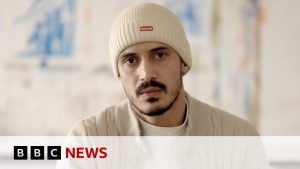
‘”The two-state solution is really a corpse of a political project that is usually used as a fig leaf for the continued oppression of Palestinians,” he says.
“It’s not about a state, if you ask me. A five-year-old can take a look at the map and tell you that this doesn’t work.”
The future of a two-state solution is in question if a generation who have most at stake in it are increasingly rejecting it as a viable option.
I ask Majd what he could imagine hoping for.
“For the longest time, I was an advocate for the ‘one democratic state’ solution [encompassing Israel and the Palestinian territories],” he says. “Over at least the last decade, there have been so many attempts to voice our discontent with this current form of governance, which have been completely repressed. I can say with a full heart, the PA does not represent the voice of not only my generation, but Palestinians at large.”’
Eldin makes no effort to inform BBC audiences of the practical implications of “one democratic state” and fails to explain that it in fact means the eradication of Israel, as clarified by Majd Nasrallah in a 2020 interview:
“Like many other Palestinians, particularly youth, none of the existing political formations represents me or my political aspirations, both inside and outside of the Green Line. The reason being their normalization to the status quo, legitimizing Zionism and accepting the partition of Palestine. I don’t believe that the Palestinian struggle is a “conflict” between two nations, nor is it a struggle for geographical borders, or economic compensation. It is a struggle for justice, a struggle for decolonization, a struggle for liberation and emancipation. As such, the only progressive, humane, and political ideology that translates my aspirations is the One Democratic State Campaign (ODSC).
I believe that we cannot continue to expect different results if we employ the same old strategies. Therefore, it comes naturally to me that a political vision which suggests we return to the original problem – in our case of settler-colonialism which has created a situation of apartheid – and proposes a real and tangible solution, is the only way forward.”
In these filmed and written reports Yousef Eldin has brought together a variety of people, ranging from black-clad armed terrorists to eloquent, Western-sounding, educated intellectuals who in fact all aspire to reach the same outcome – the end of Israel.
Not only does Eldin make no attempt whatsoever to clarify that crucial point in his accounts of their rejection of the two-state solution, he also fails to ask them how their touting of ‘natural rights’, ‘liberation’ and a ‘fully just system’ can be reconciled with their wish to deny such rights to an entire nation.
This of course is by no means the first time that the BBC has tried to mainstream the ‘one-state solution’ without explaining to audiences what it actually means. In this case we see that the BBC was willing to send a documentary maker all the way from London in order to interview proponents of that concept, including terrorists, but saw no need to inform its audiences around the world that such a ‘solution’ in fact means eradication of the Jewish state and elimination of the Jewish right to self-determination.
Related Articles:
BBC USES PHOTO OF EXPLOITED CHILD TO PROMOTE ANTI-ISRAEL PROPAGANDA

